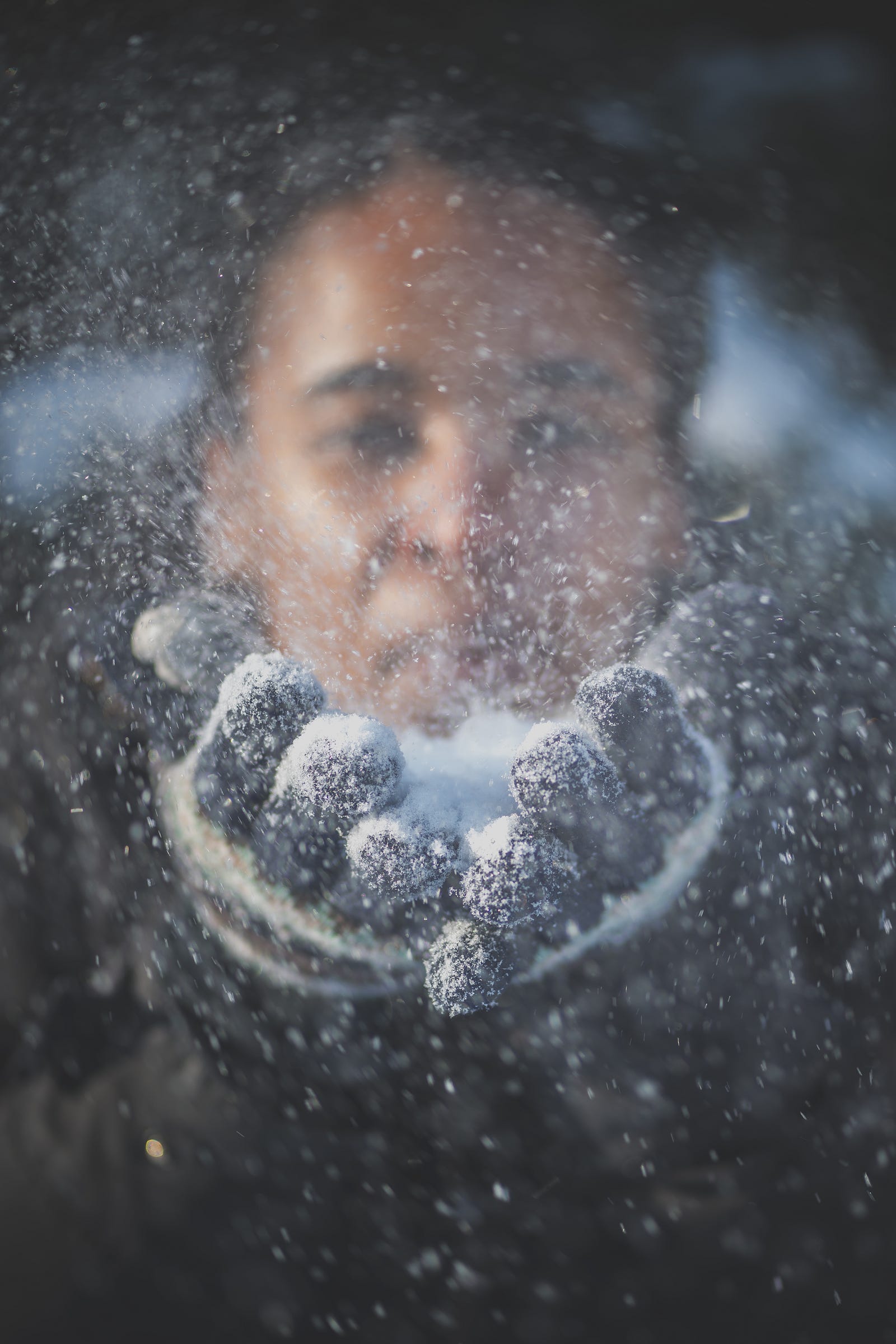THE RELATIONSHIP BETWEEN SMELL AND HEALTH has entered the spotlight during the COVID-19 pandemic. But what else can we learn about our health from our noses? Today we examine smell loss and health.
The sense of smell is a powerful tool humans use to detect and interpret the chemical compounds in our environment. Recent studies have suggested that certain odors may indicate specific health conditions and that changes in a person’s sense of smell may be an early warning sign of illness.
The use of smell as a diagnostic tool has been explored in various fields of medicine, including neurology, endocrinology, and oncology. However, further research is needed to understand the relationship between smell and health and to determine the accuracy and reliability of using smell as a predictive tool.
In this context, exploring the current scientific understanding of the link between smell and health and the potential benefits and limitations of using smell as a predictive tool is essential.
Today, I want to explore the relationship between smell and health. I will end with some suggestions for you. More specifically, we’ll examine how smell sense problems might help you catch age-related health problems.
“But, when nothing subsists of an old past, after the death of people, after the destruction of things, alone, frailer but more enduring, more immaterial, more persistent, more faithful, smell and taste still remain for a long time, like souls, remembering, waiting, hoping, on the ruin of all the rest, bearing without giving way, on their almost impalpable droplet, the immense edifice of memory.”
― Marcel Proust, Swann’s Way
Aging
Time changes many of our biological processes. Aging is marked by some predictable and progressive changes associated with increased susceptibility to numerous diseases.
Of course, aging is not a uniform process. Our internal tissues and organs age at different rates. Numerous factors — inherited genetics, lifestyle choices, and the environment — influence our aging processes.

For instance, we accumulate mutations in stem cells over time, with the rates hinging on the specific body organ.
You may wonder how much genetics matters. A study of over 20,000 Danish, Swedish, and Finnish twins discovered this:
Inherited genetics accounted for approximately one-quarter (20 to 30 percent) of the variation among twins, with environmental factors representing about one-half of the differences in longevity. Genetic influences on lifespan are minimal before 60 but increase after that.
The patterns for males and females are quite similar, but with a shift of the female pattern with age corresponding to better female survival.
Smell and taste sensation change with age
I used to take my sense of smell for granted. But with age, my olfactory function has slightly declined. It is not only my historically outstanding ability to smell that is dropping; I have a lower ability to discriminate between smells.
I am not alone in this age-related decline. Upwards of three in four individuals over age 80 have major smell impairment, with olfaction declining significantly after 70. A 2002 Wisconsin (USA) study showed that about 63 percent of those 80 to 97 had olfactory impairment.
Still, taste sensitivity also drops as we age. One study is illustrative: The older volunteers required 1.3 times higher aspartame concentrations to detect the artificial sweetener.
A similar phenomenon occurs with salt: Two to three times more salt needs to be added to tomato soup before an older person appreciates it.
Our sense of smell, or olfaction acuity, drops significantly with age. The threshold for detecting a smell increases by over 50 percent in healthy individuals by age 80. Unfortunately, this can translate to a lower ability to recognize spoiled food or to smell a gas stove mistakenly left on.
It is unclear why our olfactory sense decreases. We know that our ability to replenish smell receptor nerves drops.
Regardless of why smell sensation diminishes, the world is vastly different without smell. I walked in Seattle yesterday and watched cherry blossoms ooze their fleeting beauty. I enjoyed the aromas of plant life around me. And a trip to a local coffee shop provided wafts of fresh coffee. The taste of a morning croissant. I will remind myself how lucky I am.
The relationship between frailty and smell
“They were people whose lives were slow, who did not see themselves growing old, or falling sick, or dying, but who disappeared little by little in their own time, turning into memories, mists from other days, until they were absorbed into oblivion.”
― Gabriel García Márquez, Love in the Time of Cholera
I suspect that healthcare professionals commonly overlook taste and smell disorders among older individuals. The perils of poor smell function include accidental gas poisonings and diminished caloric intake.
We spoke earlier about older individuals requiring a two- to three-fold higher salt concentration to detect it in tomato soup. There are potential health consequences of excessive dietary salt and sugar intake. Not to mention the quality of life (including anxiety and depression) hit associated with not tasting food well.

When a person has taste or smell problems, they should seek an investigation of the issue, regardless of their age. Diagnostic maneuvers include a history and physical examination. Sometimes, the problem is as simple as polyps in the nose.
Some individuals need extensive testing, including blood tests, to discover endocrine or nutritional causes of taste or smell disorders. A clinician may suggest advanced imaging (such as a CT scan).
When clinicians have ruled out other causes, the aging process can be suspected as a primary contributor to a smell and taste disorder.
Medical conditions and smell impairment
Here are some underlying medical conditions that can be associated with smell loss:
Neurological
- Alzheimer’s disease
- Bell’s palsy
- Damage to the chorda tympani
- Epilepsy (recurring seizures)
- Head trauma
- Korsakoff’s syndrome. Korsakoff syndrome (also known as Korsakoff’s amnesic syndrome) is a memory disorder secondary to vitamin B1 deficiency and is associated with alcoholism. Symptoms can include amnesia, tremor, coma, disorientation, and vision problems.
- Tremor
- Coma
- Disorientation
- Vision problems
- Multiple sclerosis
- Parkinson’s disease
- Tumors and other lesions
Nutritional
- Cancer
- Chronic renal failure
- Liver disease
- Niacin deficiency. Niacin deficiency occurs when an individual doesn’t get enough or can’t absorb niacin (or its amino acid precursor, tryptophan). In the USA, niacin deficiency is remarkably rare. However, there have been niacin deficiency outbreaks in areas where food is scarce.
- Vitamin B12 deficiency. Symptoms include weakness, tiredness, lightheadedness, heart palpitations and shortness of breath, pale skin, or a smooth tongue. Some experience diarrhea, constipation, gas, or appetite loss. Others have nerve, visual, or mental problems (e.g., memory loss, depression, or behavioral changes).
Endocrine
- Adrenal cortical insufficiency
- Congenital adrenal hyperplasia
- Panhypopituitarism
- Cushing’s syndrome
- Diabetes mellitus
- Hypothyroidism
- Kallman’s syndrome
- Pseudohypoparathyriodism
- Turner’s syndrome
Local
- Allergic rhinitis, atopy, and bronchial asthma
- Sinusitis and polyposis
- Dry mouth conditions, including Sjögren’s syndrome
Viral infections
- Acute viral hepatitis
- Influenza‐like infections

Smell sense can matter (more than you might think)
A 2016 study showed that men (but not women) with depression tended to have a poor sense of smell. Those feeling lonely had a lower ability to identify different smells.
Some studies have associated a defective sense of smell with increased mortality. An unusual smell sensation loss may be a bellwether for aging or illness. A study of 2,200 individuals ages 71 to 82 showed poor smell sense to be linked to a nearly 1.5 times higher risk of dying within ten years than those with an ordinary sense of smell.
Finally, according to a 2022 study from the Johns Hopkins University School of Medicine (USA), smell loss is a marker for frailty.
What can we do for those with smell impairment? Once a diagnostic work-up is complete, reassurance (when appropriate) is indicated. Once non-age-related causes are ruled out, the management goals include injury mitigation. For example, visually stimulating gas detection devices can offer value for those with gas stoves.
Relatives or neighbors may be able to check for spoiled food. Of course, flavor enhancement or modification of food seems reasonable. While salt is a common additive for flavor, alternatives may include monosodium glutamate or others. Such maneuvers may slow or reverse a functional decline and improve quality of life. Some studies point to anorexia improvement, too.
If you know someone with breast cancer, here is my comprehensive online course:
Dr. Michael Hunter’s Wellness!
Edit descriptionbreastcancerbydrhunter.thinkific.com
The information I provided in this blog is for educational purposes only and does not substitute for professional medical advice. Please consult a medical professional or healthcare provider for medical advice, diagnoses, or treatment. I am not liable for risks or issues associated with using or acting upon the information in this blog.
Thank you for reading “Smell Loss and Health.”




